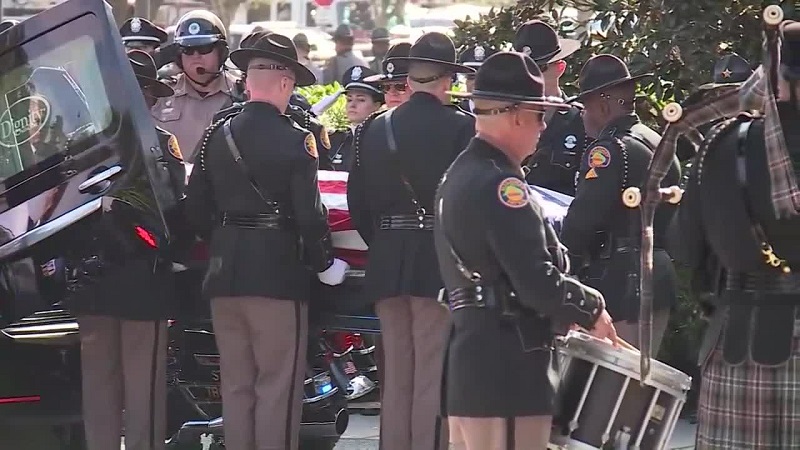
We’ve seen it in dozens, if not hundreds, of news reports and bystander videos. People rushing, faces full of fear, dragging children and loved ones along with them, running for safety as flames rise or the sound of gunshots or explosions echo. Mostly they are doing the sane thing for good reasons. But then you see the ones that Mr. Rogers talks about when helping children respond to chaos: “When I was a boy and I would see scary things in the news, my mother would say to me, ‘Look for the helpers.’ You will always find people who are helping.” The helpers could be anyone, a former soldier, a nurse, a teacher, or anyone who has the heart of a hero. But more often than not, you see men and women in uniform heading toward the flames or sounds of gunshots. Most would say “I’m not a hero, just doing my job” or “it’s not what I do, it’s who I am” but their rush into chaos is the reality that we expect and they deliver.
But what if you’re the officer that was on vacation that day? What if your partner was killed or injured and you walked away without a scratch or a thread of your uniform out of place? One of the stressors of policing that is not often discussed is the phenomenon of survivor’s guilt.
Every officer who wants to “be there” and missed it knows the feeling. I got out of the Air Force Reserves a few months before my unit was deployed to fly our C130 cargo planes in service of the first Gulf War. I felt it when I missed a major crime on my day off. People said I was lucky to miss it, whatever the “it” was, but I didn’t feel that way. When I rode with NYPD officers in the Bronx after 911 as a Chaplain, the officers apologetically said they had nothing to do with the response to the World Trade Center. Those can be minor cases of annoying guilt. But some know it so deeply that it becomes an impediment to healthy thinking.
Survivor guilt can be part of anyone’s grieving, especially in the death of a loved one. Police officers are surrounded by death and danger constantly which necessarily affects their worldview and their response to deadly events. Not only do police officers respond to deaths, both natural and violent, they are surrounded with reminders of mortality. They carry tools of lethality with them, they wear bullet-resistant vests and bright yellow vests on top. All of this imagery and attitude is behind the curtain as their duty plays out on stage. Their daily objective is to control chaos, resist mortality, go home safe and whole. Then when a brother or sister in blue is struck down, their sense of control may go down as well.
Mental health professionals say that admitting those feelings of guilt is an important part of dealing with survivor guilt. Officers may feel guilty for feeling guilty. How could they dare complain or ask for empathy for their feelings when someone else did the suffering they avoided? So the silent feelings can grow, amplified by the next time they were lucky enough to avoid tragedy or the burden of a fearsome call. It becomes yet another emotion that must be pushed aside to keep moving forward.
The torturing thoughts of “why them and not me?” along with “Why wasn’t I there for them” or even “What could I have done differently?” are also seen in PTSD and, in fact, may be part of understanding the impact of the surviving officer’s experience. Grief arising from the midst of a life of exposure to chaotic events such as combat or rescue work is unique in its intensity, stealth, and context. Dealing with quiet suffering that comes from avoiding the active suffering of others is part of the police officer’s burden. It should be acknowledged in our efforts to ensure and maintain the mental fitness necessary for our officers. Those who run to danger also often run from their grief. Support and encourage the survivors, but don’t call them lucky.